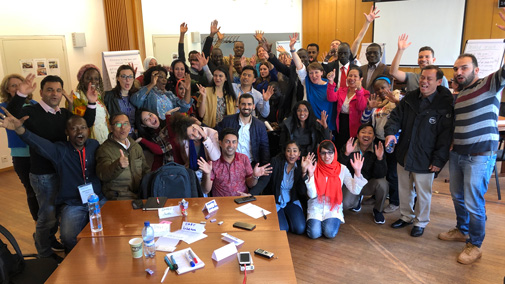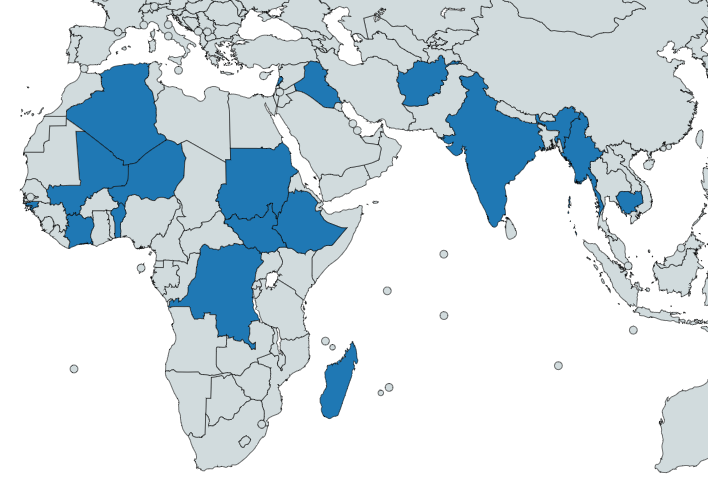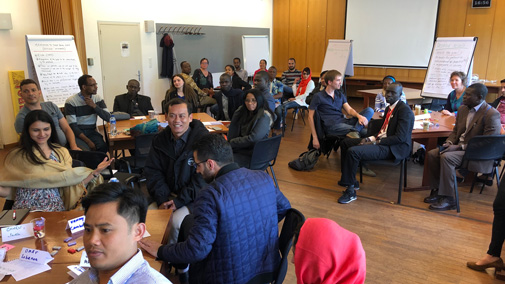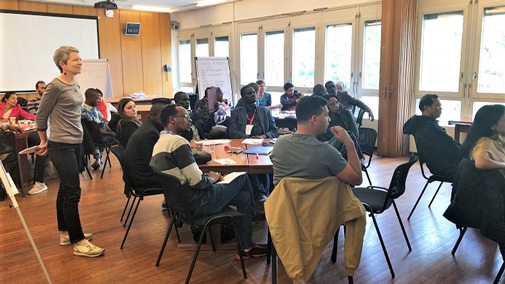This report has been produced by ICRC staff: Cornelia Anne Barth, Michaela Björk, Valentina Cemulini, Cliona O’Sullivan
Rehabilitation 2030 advocates for strengthening rehabilitation services within health systems, to address the needs of people with disabilities and the aging population globally. This is particularly relevant in low income and conflict-affected countries, where the burden of disability is greatest, often against the background of fragile health systems.

Physiotherapists have a key role to play in these contexts in terms of providing services and advocating for the development of rehabilitation services within existing health services.
Over 50 physiotherapists working for the ICRC or in ICRC-supported rehabilitation centres in countries affected by conflict attended the WCPT Congress 2019 in Geneva in May 2019.
This was an important opportunity to hear first-hand the voices of physiotherapists from low income and conflict-affected countries, about their impressions of the congress and the way forward for physiotherapy in their countries.
ICRC facilitated a post-congress workshop on May 14th, with the momentum of WCPT Congress 2019 and increased awareness of the need to strengthen rehabilitation globally, framed by WHO’s Rehabilitation 2030: A Call for Action.
Thirty four physiotherapists (15 female and 19 male) from 19 countries took part in the workshop. The participants represented the main ICRC operations in central Africa, Middle East and South Asia (see map).

The participants can truly be considered as the global physiotherapy workforce. Some of them work in particularly remote places, such as northern Mali or rural South Sudan, which is vastly different to the experience of physiotherapists in high income and developed countries.
This group of physiotherapists have key roles in anchoring physiotherapy and rehabilitation in health systems or establishing a WCPT-aligned entry level education. They work with people of all ages and across a spectrum of health conditions with the most vulnerable people on earth: people with disabilities in low income or conflict-affected countries. The ICRC promotes a multidisciplinary approach as the only way to tackle complex conditions and challenges, so therefore physiotherapists usually do not work alone. However, as the numbers of physiotherapists in these countries is extremely low, there is usually little opportunity for exchange of insights and experiences with colleagues from similar contexts.

The purpose of this workshop was to give physiotherapists from these countries the opportunity to come together and share experiences, insights, priorities and plans for the future development of the physiotherapy profession.
Two main themes underpinned the workshop:
- the future of physiotherapy in their context
- measuring impact.
The workshop was structured into these two main sessions aligned to the themes and organised into five focus groups facilitated by seven physiotherapists – five from ICRC and two professors from University College Dublin, Ireland.

The sessions proved to be highly engaging and participants welcomed the opportunity to learn from each other and share expertise. Attending congress was a very positive experience; participants found it motivating and enjoyed meeting other physiotherapists from similar situation to their own. Full thematic analysis of the focus groups is underway, however the main issues highlighted during the sessions included the need to advocate and promote awareness of physiotherapy to governments as well as the need to strengthen education and training programmes for physiotherapists. The importance of measuring the impact of physiotherapy was highlighted as well for context-specific and culturally appropriate outcome measurement in low income and conflict-affected countries.
Participants unanimously agreed their overall congress and workshop experience was highly stimulating and had encouraged them to continue developing physiotherapy and rehabilitation in their workplaces.

